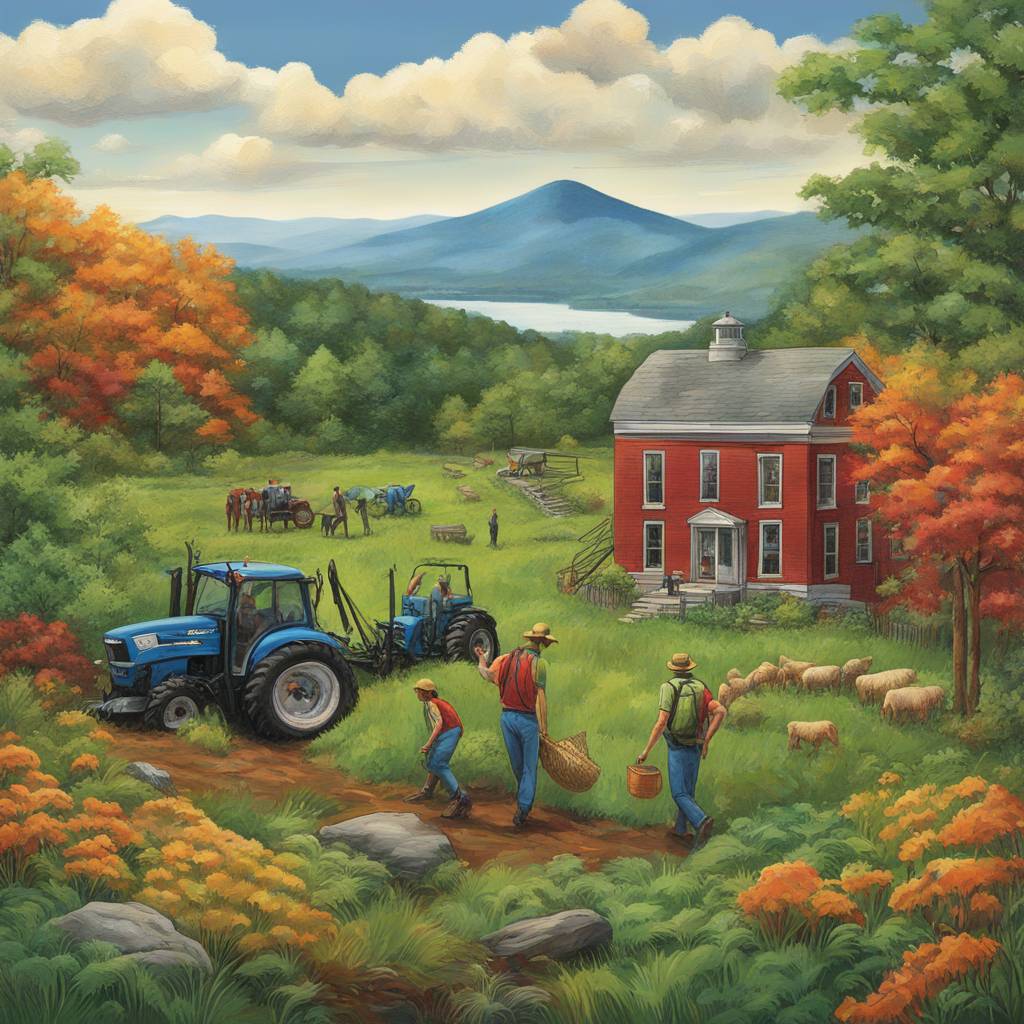Rick Bishop, a farmer and forager in the Catskill Mountains, has spent decades harvesting ramps, also known as wild leeks, guided by the wisdom of an old-time woodsman who described them as a way to “clean the winter right out of your blood.” Ramps are a perennial plant from the garlic family and one of the first greens to appear in spring. They grow abundantly in wooded areas from West Virginia to New England. Foraging for ramps is a cultural tradition in places like the Catskills and West Virginia, but it is facing criticism, particularly from younger generations who view it as ecologically harmful.
The rise of “fevered urban criticism” and the influence of politically correct culture have led to scrutiny of foraging practices like harvesting ramps. Rick Bishop, who owns Mountain Sweet Berry Farm, has found himself defending the act of foraging to officials in New York City who inspect farmers’ market vendors. While no action has been taken, Bishop felt compelled to write a vigorous defense of ramp foraging, emphasizing the ecological sustainability of his practices. He stresses that the unique ecology of the Catskills allows the ramp population to thrive when they are harvested responsibly.
Despite the criticism and controversy surrounding foraging practices, foraged ramps remain popular in top New York City restaurants. Celebrity chefs such as David Chang and Daniel Boulud covet Bishop’s seasonal, organic ramps for their distinctive flavor and versatility in the kitchen. The entire plant is edible, from bulb to stalk to leaves, and can be used in a variety of dishes, from omelets to pastas. Bishop’s passion for ramps is evident in his daily consumption of the plant, incorporating it into his meals in various ways.
The ramp seeds fall into the leaf litter every year in July and lay dormant until they become incorporated into the soil, ensuring the sustainability of the plant. Bishop urges others to support farmers who practice sustainable harvesting methods like his own. Despite the challenges and criticisms, Bishop remains committed to foraging for ramps and sharing their unique flavors with others. While the controversy around foraging ramps continues, Bishop’s dedication to the tradition and ecological practices remains unwavering.
In conclusion, Rick Bishop’s passion for foraging ramps in the Catskill Mountains has deep roots in tradition and ecological sustainability. Despite facing criticism from younger generations and politically correct culture, Bishop remains dedicated to harvesting ramps responsibly and sharing their unique flavors with others. The popularity of foraged ramps in New York City restaurants and the support of celebrity chefs underscore the value of this culinary tradition. As debates around foraging practices continue, Bishop’s commitment to sustainable harvesting methods and defending the practice serves as a reminder of the cultural and ecological importance of this longstanding tradition.













